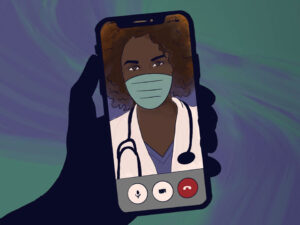The vast majority of patients with prostate cancer in the United States don't receive androgen deprivation therapy injections on time. Up to 84% of injections are delayed for patients on a 28-day schedule, according to an authoritative study published in the The Journal of Urology.
The FDA Oncologic Drugs Advisory Committee July 14 voted 12-0 to recommend approval for belantamab mafodotin for relapsed or refractory multiple myeloma.
In early March, when Giuseppe Curigliano, an oncologist in Milan, first spoke with The Cancer Letter about COVID-19, the situation in Italy was “like being in a war zone.”
As cases of COVID-19 surge in Florida, Lucio Gordan, managing physician and president of Florida Cancer Specialists and Research Institute, is working to increase the role of telehealth.
A conference organized by the American Association for Cancer Research July 20-22 will bring together oncologists from academia, industry and government to identify ways for cancer researchers to inform studies of COVID-19.
Summer of 2020 was supposed to be a brief period of respite between Wave 1 and Wave 2 of COVID-19, but out of sheer stubbornness, for reasons political, or both, SARS-CoV-2 didn't get the message.
Last time Ruben Mesa spoke with The Cancer Letter, COVID-19 was under control in San Antonio and the environs—or so it seemed.
By making lung cancer screening available to a larger population, the new guideline from the U.S. Preventive Services Task Force could save an additional 120 lives per 100,000 Americans, said Michael J. Barry, a member of the Task Force, and a professor of medicine at Harvard Medical School.
The U.S. Preventive Services Task Force has recommended expanding the eligible age range and broadening the risk threshold for annual low-dose CT screening for lung cancer.
A House subcommittee July 7 marked up a spending bill that proposes a $5.275 billion increase for NIH.















